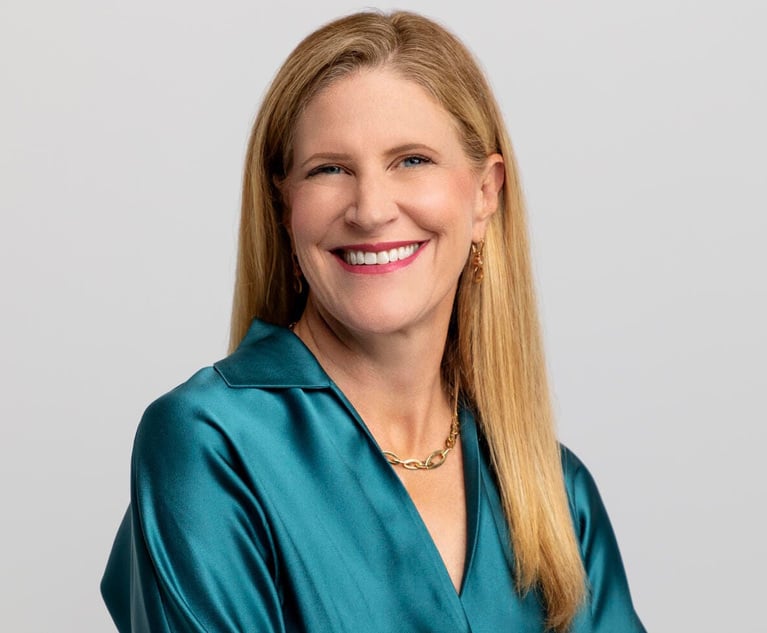How Deutsche Bank Maneuvered Around Compliance Officers and Paid the Price
The scandal-ridden German bank agreed Aug. 22 to pay the U.S. Securities and Exchange Commission $16 million for violating the Foreign Corrupt Practices Act with the hires. It is one of several banks that had been caught hiring officials' relatives to gain business.
August 28, 2019 at 05:28 PM
4 minute read
 Deutsche Bank headquarters in Germany. Photo: Kiefer/Flickr
Deutsche Bank headquarters in Germany. Photo: Kiefer/Flickr
Once again, ignoring compliance officers has cost one company dearly. Detailed government documents describe how senior Deutsche Bank managers ignored, went around and pushed through compliance efforts in order to hire relatives of foreign officials and obtain lucrative deals.
The scandal-ridden German bank agreed Aug. 22 to pay the U.S. Securities and Exchange Commission $16 million for violating the Foreign Corrupt Practices Act with the hires. It is one of several banks that had been caught hiring officials' relatives to gain business.
JPMorgan Chase & Co. agreed to pay $264 million in 2016 to settle allegations of hiring "princelings" in Asia, and Credit Suisse agreed to pay $77 million in 2018. Several other banks remain under investigation.
"Deutsche Bank employees hired relatives at the request of foreign officials in both the Asia-Pacific region and Russia to obtain or retain business or other benefits," the commission said. "These 'referral hires' bypassed Deutsche Bank's highly competitive and merit-based hiring process and were often less qualified than applicants hired through the bank's formal hiring process."
Without admitting or denying the findings, the bank agreed to pay over $10.7 million in disgorgement, $2.3 million in interest and a $3 million civil penalty. The bank did not return messages Wednesday seeking comment from its Americas unit in New York and its headquarters in Frankfurt.
The commission's administrative cease and desist order listed several examples of the bank's misconduct, including five examples:
- Deutsche hired referral "A," a young woman whose father was the chairman of a large state-owned enterprise in China, at the father's request. When the bank's compliance department blocked such hires as FCPA risks, the head of Deutsche's corporate finance division in Asia had a joint venture company hire the woman, and later moved her laterally into the bank's Hong Kong operations, circumventing compliance policies on hiring. She was even assigned to work on transactions involving her father's company.
- Upon the insistence of a mother and father, who both served as executives at state-owned enterprises in Asia, Deutsche hired their son as referral "B." The documents state he interviewed poorly, even after he was given a cheat sheet containing the interview questions and acceptable answers. It is not clear how the hire circumvented compliance officers, but the bank won four transactions based on the referral.
- Referral "C" was the son of the chairman of another state-owned enterprise. His hire was twice blocked by compliance, but again the head of corporate finance in Asia asked the joint venture company to hire the young man. The bank then allowed him to work on Deutsche bank business.
- Referral "D" was hired on the request of her father, a Russian deputy minister with whom the bank sought to do major business. She was hired as a temporary employee in Moscow, and at her father's insistence was moved to a full-time position in London. Ten days after D was transferred to London, Deutsche Bank received a request for proposal signed by D's father regarding a 2 billion Eurobond issuance, also signed by the father.
- Referral "E" was hired on the request of his father, a senior executive at a Russian state-owned enterprise, and then transferred to London. A bank human resources employee in London explained to another employee that the young man "was a classic nepo [nepotism] situation that we have every year. Tried to push back on this one," but failed. After the hire repeatedly failed to show up for work and cheated on an exam, human resources recommended his termination. Instead the bank transferred him back to Moscow where he continued to work.
The SEC said the bank's behavior violated the FCPA's books-and-records provision as well as the provision on maintaining internal controls.
For its part, the bank agreed to remedial measures that included enhancing its anti-corruption compliance program and hiring practices on a global basis, and requiring that the anti-corruption office review and approve each hire referred by a client. It also "undertook employment actions … and separated certain employees," the SEC said.
This content has been archived. It is available through our partners, LexisNexis® and Bloomberg Law.
To view this content, please continue to their sites.
Not a Lexis Subscriber?
Subscribe Now
Not a Bloomberg Law Subscriber?
Subscribe Now
NOT FOR REPRINT
© 2025 ALM Global, LLC, All Rights Reserved. Request academic re-use from www.copyright.com. All other uses, submit a request to [email protected]. For more information visit Asset & Logo Licensing.
You Might Like
View All
Wells Fargo and Bank of America Agree to Pay Combined $60 Million to Settle SEC Probe

Amex Latest Target as Regulators Scrutinize Whether Credit Card Issuers Deliver on Rewards Promises

Former Capital One Deputy GC Takes Legal Reins of AIG Spinoff
Trending Stories
- 1Decision of the Day: Trial Court's Sidestep of 'Batson' Deprived Defendant of Challenge to Jury Discrimination
- 2Is Your Law Firm Growing Fast Enough? Scale, Consolidation and Competition
- 3Child Custody: The Dangers of 'Rules of Thumb'
- 4The Spectacle of Rudy Giuliani Returns to the SDNY
- 5Orrick Hires Longtime Weil Partner as New Head of Antitrust Litigation
Who Got The Work
J. Brugh Lower of Gibbons has entered an appearance for industrial equipment supplier Devco Corporation in a pending trademark infringement lawsuit. The suit, accusing the defendant of selling knock-off Graco products, was filed Dec. 18 in New Jersey District Court by Rivkin Radler on behalf of Graco Inc. and Graco Minnesota. The case, assigned to U.S. District Judge Zahid N. Quraishi, is 3:24-cv-11294, Graco Inc. et al v. Devco Corporation.
Who Got The Work
Rebecca Maller-Stein and Kent A. Yalowitz of Arnold & Porter Kaye Scholer have entered their appearances for Hanaco Venture Capital and its executives, Lior Prosor and David Frankel, in a pending securities lawsuit. The action, filed on Dec. 24 in New York Southern District Court by Zell, Aron & Co. on behalf of Goldeneye Advisors, accuses the defendants of negligently and fraudulently managing the plaintiff's $1 million investment. The case, assigned to U.S. District Judge Vernon S. Broderick, is 1:24-cv-09918, Goldeneye Advisors, LLC v. Hanaco Venture Capital, Ltd. et al.
Who Got The Work
Attorneys from A&O Shearman has stepped in as defense counsel for Toronto-Dominion Bank and other defendants in a pending securities class action. The suit, filed Dec. 11 in New York Southern District Court by Bleichmar Fonti & Auld, accuses the defendants of concealing the bank's 'pervasive' deficiencies in regards to its compliance with the Bank Secrecy Act and the quality of its anti-money laundering controls. The case, assigned to U.S. District Judge Arun Subramanian, is 1:24-cv-09445, Gonzalez v. The Toronto-Dominion Bank et al.
Who Got The Work
Crown Castle International, a Pennsylvania company providing shared communications infrastructure, has turned to Luke D. Wolf of Gordon Rees Scully Mansukhani to fend off a pending breach-of-contract lawsuit. The court action, filed Nov. 25 in Michigan Eastern District Court by Hooper Hathaway PC on behalf of The Town Residences LLC, accuses Crown Castle of failing to transfer approximately $30,000 in utility payments from T-Mobile in breach of a roof-top lease and assignment agreement. The case, assigned to U.S. District Judge Susan K. Declercq, is 2:24-cv-13131, The Town Residences LLC v. T-Mobile US, Inc. et al.
Who Got The Work
Wilfred P. Coronato and Daniel M. Schwartz of McCarter & English have stepped in as defense counsel to Electrolux Home Products Inc. in a pending product liability lawsuit. The court action, filed Nov. 26 in New York Eastern District Court by Poulos Lopiccolo PC and Nagel Rice LLP on behalf of David Stern, alleges that the defendant's refrigerators’ drawers and shelving repeatedly break and fall apart within months after purchase. The case, assigned to U.S. District Judge Joan M. Azrack, is 2:24-cv-08204, Stern v. Electrolux Home Products, Inc.
Featured Firms
Law Offices of Gary Martin Hays & Associates, P.C.
(470) 294-1674
Law Offices of Mark E. Salomone
(857) 444-6468
Smith & Hassler
(713) 739-1250







